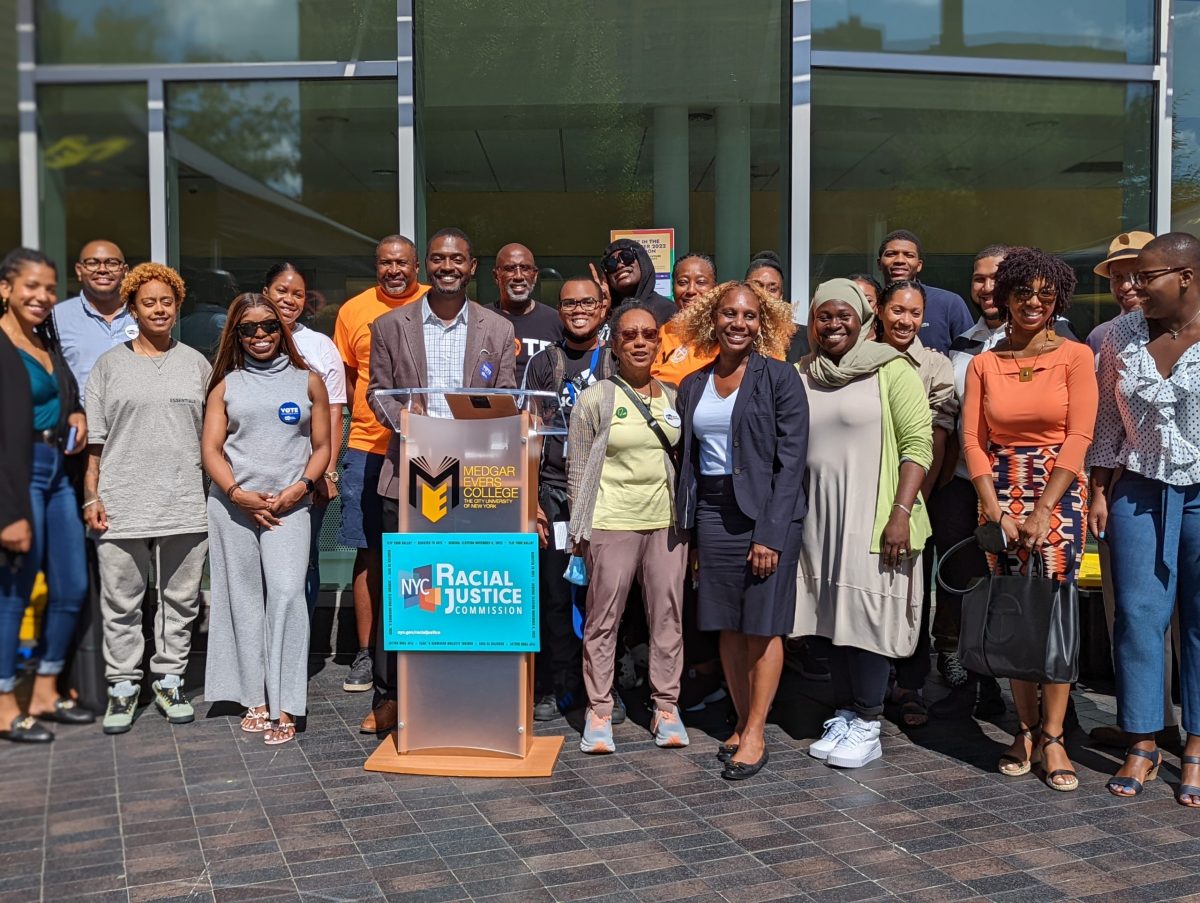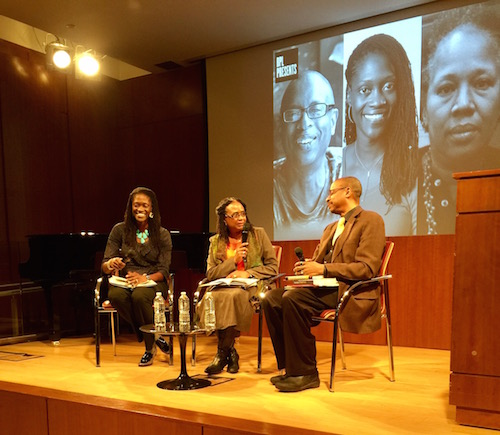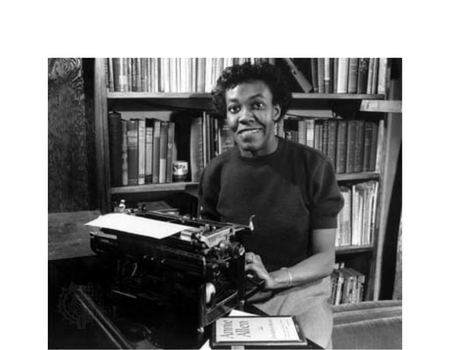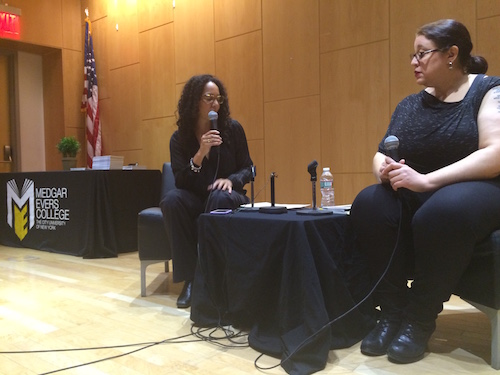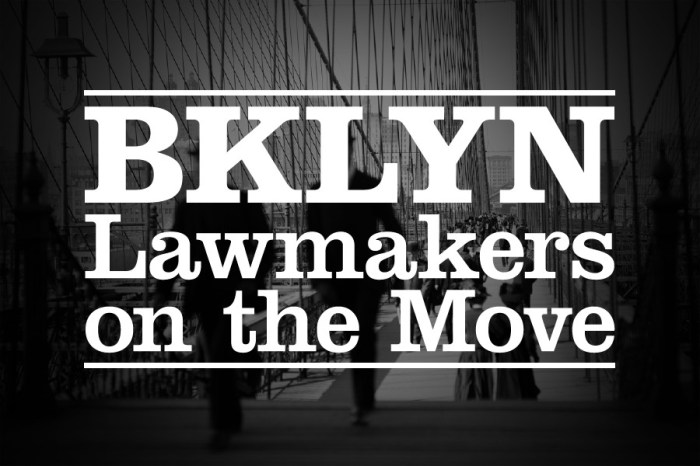New York City’s Racial Justice Commission (RJC) is reminding voters to flip their ballots when they go to the polls for the Nov. 8 general election.
That’s because there will be three proposals on the ballots’ flipside geared towards amending the City Charter to make the five boroughs more racially equitable. Voters will get to vote “yes” or “no” on each of the three referendums to add a statement of values to the City Charter aspiring to ““a just and equitable city for all,” set up a Racial Equity Office – plan and commission – and measure the “true cost of living” in the city.

There will also be a fourth state-wide ballot question on New York City residents’ ballots that pertains to Albany obtaining $4.2 billion through a bond to bolster spending on specific environmental projects.
RJC Chair Jennifer Jones Austin – CEO of the Federation of Protestant Welfare Agencies (FPWA) and a former chair of the city Board of Corrections – said the commission’s goal in writing the three ballot measures was to address structural racism embedded in the laws of the city’s government.
“What we are trying to illuminate here is that racism is structural in nature, that racism is embedded in our laws, in our policies, our practices, but also in our laws,” Jones Austin told PoliticsNY. “And that if, as a people, as a society, we are sincere about doing something about racism, we can’t just train our way out of this. We can’t just talk our way out of it and hope that people will come to a better place. We have to look at the laws in our society that have helped to birth, enable and perpetuate systemic racism.”
“The aim is really to just ensure that on a going forward basis the city pays attention to how government is run,” she added.
In addition to Jones Austin, the 11-member commission includes figures like District Council 37 Executive Director Henry Garrido, city Department of Probation Commissioner Ana Bermúdez and Asian American Federation Executive Director Jo-Ann Yoo.
The RJC is a City Charter revision commission formed in 2021 by ex-Mayor Bill de Blasio and came up with the three ballot questions after reviewing the charter looking for structural barriers to people of color and community input, according to its website. De Blasio established the commission following widespread racial justice protests in 2020 that took place in the wake of George Floyd’s murder at the hands of a former Minneapolis police officer.
Although the commission was started under de Blasio, Mayor Eric Adams has taken it under his wing. In May, Adams pumped $5 million into the commission to boost its outreach and education efforts leading up to the November general election, according to a City Hall press release at the time.
“Equity and justice go hand in hand and are key to building a prosperous city that serves all New Yorkers,” Adams said in the release. “And while our city has come a long way, we have more work to do. I am proud to support the Racial Justice Commission’s efforts to ensure New Yorkers can fully participate in our democracy with full transparency. These three ballot initiatives intend to place racial equity at the heart of New York City government.”
That funding went towards a National Voter Registration Day event this past Wednesday at CUNY’s Medgar Evers College, plus several others the commission will host and a paid media campaign in the five-week lead up to the election, a consultant for the commission told PoliticsNY.
The first ballot question would add a preamble to the City Charter, Jones Austin said, that both acknowledges why the city needs to focus on racial equity and a vision for what a more equitable city would look like.
“We thought it was important to first acknowledge the harm, so that it’s not the case where people think that we’re just doing something or creating an issue. No the issue [has] been here,” Jones Austin said. “We developed a statement of values that speaks to every New Yorker regardless of race, ethnicity, national origin, immigration status, sexual orientation, identity. What every New Yorker has a right to expect when engaging with government to help ensure that their basic needs, their fundamental rights are served.”
Question two would require the formation of a racial equity office to be headed by a Chief Equity Officer, that would support city agencies in bettering city services for people of color who’ve been negatively impacted by past municipal policies and report on equity related data. Jones Austin said it was important to enshrine this office in the charter, instead of through an executive order, so that it’s a permanent part of city government that a future mayor can’t just get rid of with a wave of their pen.
The proposal would also call for the issuance of citywide and agency specific equity plans every two years as well as establish a Commission on Racial Equity appointed by city elected officials.
The third proposal would mandate the city to provide a measure of the “true cost of living” in the five boroughs – including costs like housing, food, transportation and child care. The city would have to issue an annual report on the measure annually.
“It was felt that a true cost of living measure would really begin to help us appreciate how inequitable our city may be,” Jones Austin said. “When it comes to people actually having the resources that they need to get ahead. I’m not talking about getting a handout, I’m actually talking about getting ahead. That it would be a value add to do this, and that this proposal could begin to help inform policy and planning.”


